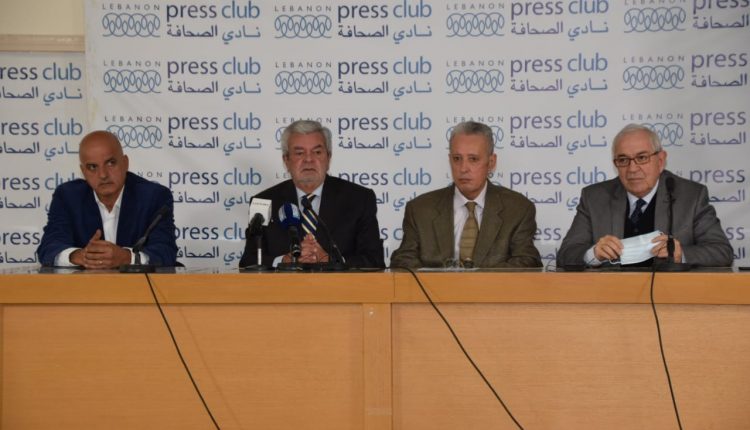The Lebanese Environment Forum (LEF) held a press conference during which it launched an awareness campaign within the framework of the project “Lebanese civil society combatting for a Mediterranean plastic free”, in collaboration with the Lebanon Eco Movement (LEM) and with the support of the European Union Delegation in Lebanon. The conference was held at the Lebanese Press Club on Thursday, December 9th 2021, at 11:30, in the presence of Lebanese media representatives.
After a welcoming note made by journalist Mireille Akiki, the President of the Lebanese Environment Forum Malek Ghandour presented the project, which is a milestone for achieving the quality and sustainability of the beach and the sea resources. Ghandour stated that the last part of this national project, that fights to end the plastic pollution of the sea, and that was launched in 2018, aims for plastic free marine resorts. Moreover, Ghandour insisted that it became urgent to stop using the Lebanese coast as dumping ground for waste, and to start considering it as a natural national reserve. Furthermore, he explained that the project consists of three complementary parts, the first of which aims to spread awareness on the condition of the Lebanese coast and to create an influence of the public opinion, the second part aims to organize advocacy activities and to suggest new laws that achieve the purpose of this project, and the third part focuses on funding small projects and following up their implementation. Ghandour concluded his speech by hoping that this project could notably change the quality and sustainability of the coastal and marine resources, and be a principle for a creative management to preserve a clean and safe Lebanese coast, in the aim of having a plastic-free sea.
For his part, the President of the syndicate of the hotel owners in Lebanon, Pierre El-Achkar, explained that the problem is not purely Lebanese, as the plastic problem is found in many countries. He gave an example of the United States of America, which produces millions of tons of plastic. Then he stressed that the waste on the coast, especially plastic, seriously harms the tourism sector and Lebanon in general. He also explained that the Lebanese state is responsible for explaining the importance of sorting waste and asking citizens to do so, knowing that sorting, especially that of plastic, could become a source of millions of dollars.
Moreover, the president of the environmental committee of the Association for Lebanese Industrialists, Sami Assaf, also said that the main solution to the waste issue is administrative decentralization, which must be applied in the electricity sector as well, stressing the importance of the role that municipalities can play in this file.
Likewise, the head of the maritime rescue unit of the Civil Defense Samir Yazbek, made an intervention where he spoke about the pollution in the sea when conducting rescue operations.
During the conference, an infographics video that tackles the plastic pollution in Lebanon was projected, in addition to another video showcasing the work of the marine rescue unit of the civil defense in Lebanon, a part of the fight against sea pollution.
This campaign, launched by the Lebanese Environment Forum, aims to encourage the sea resorts and other sea tourism actors to change their approach regarding the use of plastics, in order to completely end it and to start sorting waste from the source. Moreover, this campaign seeks to spread awareness on the environmental threats that plastics cause to the sea, the marine animals, and even to human health. It’s important to mention that the campaign will be concluded by a workshop for the beach resorts and the marine touristic sectors, that will be held on Tuesday, December 21st.
To mention that the Lebanese Environment Forum is a non-governmental organization established in 1991 that regroups today more than 72 Lebanese environmental organizations from all Lebanese regions, in the aim of assembling them, coordinate and unify their goals visions and strategies, as well as to increase their effectiveness, and coordinating with the concerned national and international entities.to protect environment and humans.













